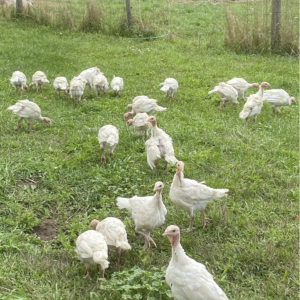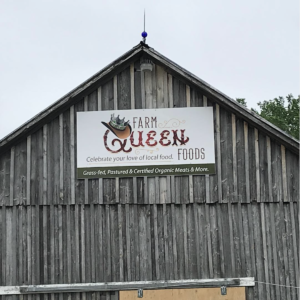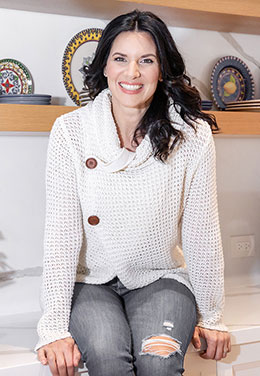Meat gets a bad rap these days because of health implications and negative environmental impacts. The bad rap, in my humble opinion, has more to do with the “big food” business of getting billions of people worldwide to eat synthetic meat, rather than for the benefits of the environment, or your health.
For example, this is the list of ingredients in the Beyond Meat Burger, a famous up-and-coming vegan burger company:
Water, Pea Protein Isolate, Canola Oil, Refined Coconut Oil, Rice Protein, Natural Flavors, Cocoa Butter, Mung Bean Protein, Methylcellulose, Potato Starch, Apple Extract, Salt, Potassium Chloride, Vinegar, Lemon Juice Concentrate, Sunflower Lecithin, Pomegranate Fruit Powder, Beet Juice Extract (for colour).
Is this the worst possible ingredient list? Probably not. But when did a list of preservatives, modified starches, sugars, and oils become better for our health?
Alternatively, lab-grown meat hit the shelves this year in Singapore, and these synthetic meats are produced either directly from animal cells or via microorganisms through fermentation, with no long-term studies on health benefits.
To create lab-grown meat, scientists extract muscle stem cells from an animal and grow them in highly processed raw calories, soy, and corn, to produce muscle tissue. Next, the muscle tissue is fed, multiplied, shaped, and structured to become the meat we recognize.
A few questions I have are where are the soy and corn coming from? Is it from monocropping, which is detrimental to the environment? Are the processed calories, being soy and corn, genetically modified?
Ultimately, is lab-grown food created from animal cell lines by way of processed corn and soy, or synthetic “plant-based” ingredients the answer to unethical factory farming, poor animal welfare, chronic illness in humans, and pollution?
The current mainstream messaging is that since livestock (through factory farming) is contributing to all the above outcomes, we should do away with the whole notion of eating meat and instead turn to synthetic versions of it, as the solution.
But, Big Food and Big Tech giants are some of the investors in the synthetic meat movement, and undoubtedly, the projected profits from their multi-billion-dollar industry will drive most of the motivation behind touting its own products.
Call me old-fashioned, but I’m skeptical of their claims, and I prefer a simpler and more traditional approach to eating. I’ve never been a big proponent of ingesting anything synthetic, so I have a really hard time getting behind this idea.
Instead, could the movement back towards pre-industrial farming, or better yet, regenerative eco-farming be a better solution for human and environmental health?
“MEAT” A REAL REGENERATIVE ECO-FARMER

When I consider where I buy my meat, from owner/operator/farmer Cindy at Farm Queen Foods, I feel very comfortable with eating meat and know that my health is supported as well as the welfare of the animals on her farm.
The natural processes of her farming help contribute to healthy human life by way of healthy animals, which equals healthy meat.
When animals are fed a corn-based diet, like in factory farms, they produce a higher amount of Omega 6:3 ratios (just like humans) that lead to inflammation in the body, the cornerstone of most modern chronic illnesses. Cindy’s meat has the appropriate ratio of Omega 6:3 (not too high) due to the animal’s natural diet, decreasing inflammation in the body.
Her animals are on pasture and are fed Certified Organic grain feed that provides them with minerals, salt, and kelp, and she uses no antibiotics in her feed.
She manages Pigs, Chickens, Turkeys, Ducks, Quails, and Goats. She partnered with a farm close by that has the same values and sells their 100% “grass-fed and finished” beef and lamb through her farm store.

Cindy considers the environment too since she farms with regenerative practices that improve the health of the ecosystem by sequestering carbon from the atmosphere, which has been shown to slow and even reverse pollution.
Her farming practices ensure that she’s putting more oxygen into the environment by changing carbon (straw, manure, and crop waste) into the soil where it generates more oxygen, growing grasses, trees, and bushes.
Her entire farm operation relies on the health of the soil and the grass it provides. She uses organic and ecological soil management practices to maintain soil health which includes fertilizing with manure produced on the farm and only after it has been properly composted.
Proper composting encourages worms and those wonderful, good bacteria that benefit the gut health of animals and humans.
The finely textured perennial grasses that are native to Grey County, Ontario, Canada grow well on their hilly clay-based soil, thanks to their efforts in preserving it.
After I visited Cindy’s farm, I better understood why it’s not the cow’s fault, it’s the “how.” When we did away with traditional farming and let industrial agribusiness take over, it caused major shifts in meat production as well as a shift in cultural meat values.
When you compare large CAFOs (Confined Animal Feeding Operations/factory farms) with small-scale regenerative farming, like Cindy’s—I don’t believe the argument for lab-grown or Beyond Meat holds up very well.
(See my blog about Modern Food Production, Human Health, and Climate Change)
TRADITIONAL MEAT DIETS STAND THE TEST OF TIME
Yes, right now buying healthy meat comes with a higher price tag, but I come from the school of thought—thanks to my 91-year-old grandmother—that food is not something to compromise.
My mother tells me that when they immigrated from Italy a long time ago, no matter how poor they were, they always ate well. My grandmother always valued healthy food and would not compromise. They may have had very little in the way of stuff, but they were rich in the kitchen, and meat was part of their diet. I’ve seen how well a proper diet paid off for my beloved grandmother who still lives on her own, drives herself around, and travels back and forth from Italy thanks to good health.
I do believe that we need a shift in our values when it comes to our everyday diet, and if we put a higher value on the quality of our food and the hard work of our local farmers, then the price of the “better” food would become more affordable.
My solution, when it comes to meat, is to get to know a local small farm so that you can trust where you invest your hard-earned money.
If you live in Canada, use this link to find a farmer near you.
https://regenerationcanada.org/en/
I have been a customer of Cindy’s for a few years, and her meat never disappoints. I love that she practices regenerative farming methods, and her farming style contributes to a healthier planet and people. The bottom line is that I’m just not sure yet about the big claims coming from Beyond Meat or lab-grown meat companies.
To learn more about Cindy check out https://farmqueenfoods.ca/ and watch her super fun farm-life videos at https://www.instagram.com/farmqueenfoods/



